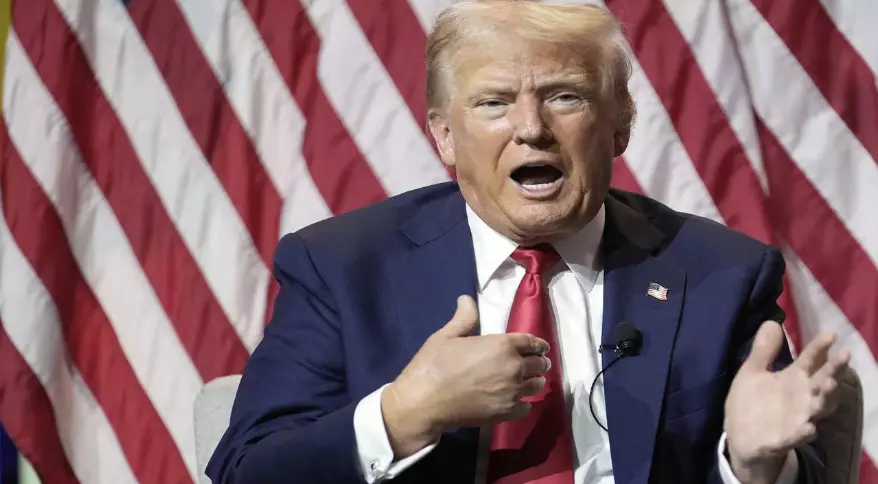If Donald Trump refuses to accept the mandate, yet again, does history have an answer?
If Donald Trump refuses to accept the mandate, yet again, does history have an answer?

As Donald Trump revisits memories of his refusal to accept the 2020 election results, we examine historical precedents to see if there are lessons to learn from past contested elections, from Hayes vs. Tilden to Gore vs. Bush.
Trump's Refusal to Concede: A Recurring Issue
At a recent 2024 election rally in Lititz, Pennsylvania, former President Donald Trump remarked, "I shouldn't have left. I mean, honestly, because... we did so well." This comment has sparked concerns about his willingness to accept the results of the November 5 election if he loses.
Trump's refusal to concede in 2020 was unprecedented. On January 20, 2021, he became the first sitting president in modern history to skip the inauguration of his successor. Instead of welcoming Joe Biden to the White House, as is customary, Trump left early that morning.
Legal and Ethical Implications
Former White House advisor David Gergen, commenting to CNN at the time, stated, "What we are witnessing is an assault on the very idea of democracy. The Constitution is clear: the peaceful transfer of power is a fundamental requirement." Trump's refusal to concede in 2020 led to numerous lawsuits, many dismissed due to lack of evidence, and a narrative questioning the election's legitimacy.
Richard Painter, former chief White House ethics lawyer, noted in an NPR interview, "The Constitution mandates that the results of a fair election be respected. Trump's claims are not just misleading; they are damaging to the rule of law." Painter warned of a potential crisis if Trump refuses to leave office, leading to a scenario with two individuals claiming the presidency.
Historical Context: Hayes vs. Tilden
The 1876 presidential election between Republican Rutherford B. Hayes and Democrat Samuel J. Tilden is one of the most disputed in U.S. history. Tilden won the popular vote and initially seemed to have enough electoral votes, but disputes in several Southern states led to both parties claiming victory amidst allegations of fraud.
To resolve the deadlock, Congress formed an Electoral Commission, which, after much deliberation, awarded the disputed electoral votes to Hayes, giving him a narrow victory. This controversial outcome led to the enactment of the Electoral Count Act of 1887, designed to clarify the procedures for resolving disputes over electoral votes.
Lessons from Gore vs. Bush
The 2000 presidential election between George W. Bush and Al Gore was another close and contentious race. Florida's electoral votes were pivotal, and Gore requested recounts due to the razor-thin margin. The legal battles culminated in the U.S. Supreme Court halting the recount, and Gore conceded the following day, December 13, 2000.
A Constitutional Mandate
Van Jones, in an October 2020 TED Talk, emphasized that while a concession speech is a voluntary gesture, it plays a crucial role in upholding democratic norms. The U.S. Constitution mandates that the new president be inaugurated on January 20, ensuring a definitive end to the incumbent's term at noon that day.
What If Trump Refuses to Leave?
Lawrence Douglas, a law professor at Amherst College, discussed the Electoral Count Act's complexities in a podcast with The Washington Post. He highlighted that while the Act mandates separate debates and votes in the House and Senate, it is often seen as flawed due to its vague definitions.
In 2020, Joe Biden assured Trevor Noah on The Daily Show that if Trump refused to leave, military leaders would escort him out. Nancy Pelosi echoed this sentiment, asserting that there is a process to ensure a peaceful transition of power.
History offers lessons on handling contested elections, but the peaceful transfer of power ultimately depends on the adherence to democratic principles and constitutional mandates. The Electoral Count Act and the precedent set by past elections provide a framework, but the willingness of political leaders to respect these norms is crucial.

